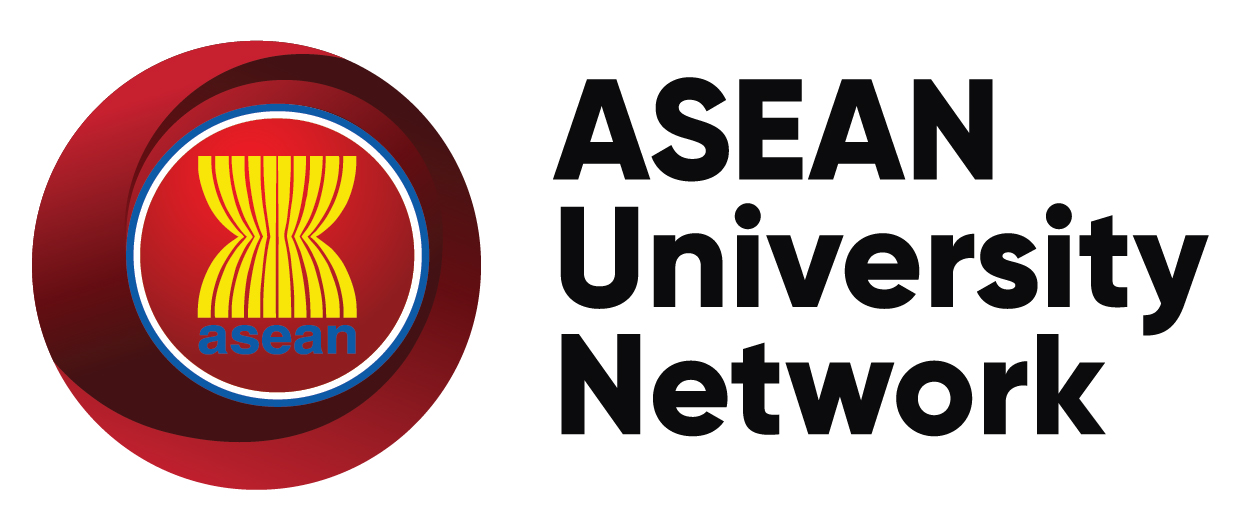Strategic alliances are essential to enhance understanding of global challenges from different perspectives. Networks and Alliances provide an environment for discourse and improved understanding of cross-cultural nuances and can leverage on collective expertise to influence policy and find cross-disciplinary solutions to global issues. NTU is proud to be an active member of key international alliances and networks.
With more than 500 member institutions in 50 commonwealth countries, it serves to promote collaboration and capability development among Commonwealth universities through programmes and scholarship administration. Ultimately, turning these into benefit for individuals and societies throughout the Commonwealth and beyond.
NTU, in collaboration with the ACU, hosted a one-day seminar on “Developing innovative minds: how to foster independent thinking as student numbers rise” and the ACU Council Meeting in June 2017.
Grants and scholarships are offered to students of member universities who want to pursue education abroad. There are also specific grants for member universities who collaborate with each other on advancing gender equality, climate change adaptation, global health knowledge, peace, UN sustainable development goals and good research practice. For example, the ACU Blue Charter Fellowship is funded by the UK Government Department for Business, Energy & Industrial Strategy (BEIS) and Waitrose & Partners to support the goals of the Commonwealth Blue Charter Programme. It aims to resolve ocean-related problems and meet commitments for sustainable ocean development through world-class research and innovation.
To find out how ACU member universities have been contributing to the world, click here for their latest newsletter.
-resized-copy-2.jpg?sfvrsn=723ce93e_1)
Association of Pacific Rim Universities (APRU) is the only network of leading universities linking the Americas, Asia and Australasia. It aims to foster collaboration between member universities, thereby addressing global challenges and contribute to the economic, scientific, and cultural advancement in the Pacific Rim.
After formally admitted into the network in late 2017, NTU was appointed to the APRU International Policy Advisory Committee (IPAC) in January 2020. The IPAC provides advice on the implementation of the APRU Strategic Framework and in policy
formulation.
APRU Programmes
The APRU's programmes are organized under 3 thematic priorities within the Strategic Framework, namely: Shaping Higher Education; Creating Global Leaders; and Partnering on Solutions. Activities include annual APRU meetings, forums and symposiums, the Undergraduate and Graduate Summer Programme, workshops for Early Career Researchers and Case Competitions with partners, as well as programmes such as the Asia Pacific Women in Leadership, Global Health, Digital Economy, Multi-Hazards, Population Ageing, Sustainable Cities & Landscapes and the Pacific Ocean.
In addition to leveraging on the research capabilities of the APRU member universities, the various APRU programmes also engage with international organizations such as the United Nations and Asia Pacific Economic Cooperation to address the science and policy divide.
A comprehensive overview of the APRU's impact and contribution to addressing Asia-Pacific challenges may be found in the APRU Impact Report 2020.

Launched by Tokyo Institute of Technology in 2009, The Asian Science and Technology Pioneering Institutes of Research and Education, (ASPIRE League), is a consortium of 5 Asian science and technology universities. It was created to form a hub for innovation in Asia through the advancement of science and technology and the development of human resources, thereby contributing to the realization of a sustainable world.
Its current members are Hong Kong University of Science and Technology (HKUST), Korea Advanced Institute of Science and Technology (KAIST), Nanyang Technological University (NTU), Tsinghua University, and Tokyo Institute of Technology (TokyoTech).
The ASPIRE League’s activities involve collaborative research projects, student conferences at the graduate and undergraduate level, and annual workshops and conferences on sustainability-related topics.
Since 2009, the ASPIRE League has collaborated with the Europe-based IDEA League to include each other’s students in their respective student events.
ASPIRE Forum
NTU has organised the ASPIRE Forum twice, during its year of Chairmanship in 2017 and 2018. It is a 5-day event held annually which comprises of the ASPIRE Graduate Student Workshop,
the ASPIRE Symposium, and the Vice President and Senior Staff Meeting.
ASPIRE Undergraduate Research Academy (UGRA)
NTU hosted the first 3 editions of the UGRA from 2014 to 2016 and has also sent 5 undergraduate participants to every edition of the event. This 4-day research
workshop consists of site visits, group work, and lectures, giving students the opportunity to grow as global citizens and develop research networks.
ASPIRE League Partnership Seed Fund Programme
The Seed Fund Programme was started in 2019 and is intended to promote collaborative research among member universities. NTU faculty are involved in various projects funded under this programme with partners at the member universities

NTU is a founding member university of the ASEAN University Network (AUN). It was established in November 1995 to promote higher education cooperation and development among ASEAN universities. The AUN’s 30 member universities comprise the leading institutions of each ASEAN member state.
The AUN’s current activities are categorized into 5 areas: Quality Development, Academic Collaboration, Youth Activities, Policy Discussions and University Leaders’ Meetings.
The AUN also engages in extra-regional cooperation with East Asian universities under the ASEAN+3 network which includes China, Japan and the Republic of Korea.
AUN’s goal is achieved through activities such as the annual series of AUN Senior university leaders’ meetings, student exchange, AUN Youth Platforms, AUN/Southeast Asia Engineering Education Development Network (SEED-Net), AUN Quality Assurance (AUN-QA) Chief Quality Officers’ (CQO) Meeting and International Conference and ASEAN+3 Heads of International Relations Offices’ Meeting.
NTU is an active participant of the annual AUN senior university leaders’ Meeting, ASEAN+3 Heads of International Relations Offices’ Meeting and has hosted the ASEAN Student Leaders’ Forum.
In cooperation with Japan International Cooperation Agency (JICA), a 4-year doctoral scholarship is provided to highly qualified individuals who are existing graduates or staff of member institutions of AUN/SEED-Net. NTU has hosted 6
AUN/SEED-Net doctoral scholars.

The Southeast and South Asia and Taiwan Universities (SATU) was established in
2005 by National Cheng Kung University to address critical economic, societal, and political challenges facing the Southeast Asian region.
SATU serves to promote collaboration between Taiwanese universities and overseas universities in the South and Southeast Asian region. It currently has 87 member universities from 9 countries.
On top of the biennial SATU Presidents’ Forum and annual SATU Presidents’ Forum Steering Committee Meeting, the network’s activities have also been focused on joint research collaborations between member universities, under the SATU
Joint Research Scheme (JRS).
Since the Scheme’s launch in 2012, NTU faculty have secured travel support funding from this Scheme for 12 projects. In 2019, 7 NTU researchers were CO-PIs of the projects that were funded by the JRS.

Spearheaded by the Swedish Government, The Swedish Foundation for International Cooperation in Research and Higher Education (STINT) is a project that aims to internationalise
Swedish higher education and research.
STINT promotes internationalisation as an instrument to enhance the quality of research and higher education which propels universities or people in the academia to be more innovative in tackling global issues. It encourages educational renewal within internationalisation through new collaboration forms and new partners.
NTU and STINT has been partners in the Teaching Sabbatical Programme since 2011 with 14 STINT Fellows attached to NTU from 2011 to 2019. Through this programme STINT invests in international collaborations for University teachers’ to achieve educational renewal by providing applicants the opportunity to teach in universities based in Asia or the US.
NTU is a founding member of The University Alliance in Talent Education Development (UAiTED), which was newly launched on December 2019. 16 Asian universities are currently part of this network. The alliance was initiated and is supported by the Sayling Wen Cultural and Educational Foundation, with the leadership and coordinating efforts of the Chancellor of University System of Taiwan, Dr Ovid Tzeng.
NTU was represented by Deputy President and Provost Professor Ling San for the launch ceremony.
UAiTED, is committed to the preparation, promotion, and development of future talents through strategic collaboration in industry internships, education and innovation.
In 2020, the UAiTED introduced the NARLabs+UAiTED International Internship Scholarship Programme that is open to all international undergraduates, graduates and PhDs to intern at a research lab in Taiwan.
NTU is a member of The University Consortium of 21st Century Maritime Silk Road (UCMSR) which was inaugurated in October 2018 with Xiamen University as the host.
UCMSR aims to facilitate exchange and cooperation in areas of inter-university communication, talent cultivation, discipline building, technological innovation and social service. This in turn develops inter-disciplinary talents with a global perspective and strengthen cross- cultural understanding with the friendships forged.
UCMSR’s main framework for cooperation includes but is not limited to the MSR Innovation Campaign, the MSR Study Tour Programme, the MSRTraining Base, the MSR Joint Fund and the MSR Forum for University Presidents.
Currently, there are 60 universities from 17 countries and regions along the Maritime Silk Road part of this alliance.



